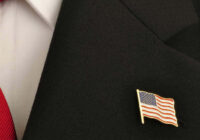It is time for all of America’s institutions of democracy to engage, activate the citizenry and make its democracy function as it should.
“The tree of liberty must be refreshed from time to time with the blood of patriots and tyrants,” said Thomas Jefferson, America’s third president.
This quote came to mind in the aftermath of the US presidential election and Donald J. Trump’s improbable victory. Not because a literal bloodletting is in the offing, though we may very well see a figurative one. But rather because America’s tree of liberty is in need of refreshing, shaking up or even repotting in more fertile soil. Its democratic roots need new nourishment. So, in that sense, Jefferson may have been on to something.
Can it be that Americans have grown complacent of their democracy? They vote—well, barely half the country. They pay their taxes—though of some we can’t be sure. And a very small number serve in its armed forces, less than 0.5%. But an increasing number volunteer their time and talents for a multitude of causes like places of worship, the environment, literacy and hundreds more.
But a shocking number of American adults cannot name their senators or members of Congress. Few can name more than a couple Supreme Court judges or cabinet members. Many are unaware of how laws are passed or of the authorities granted the president by the Constitution. The lack of awareness of public affairs can be appalling. Those who stay abreast of issues often follow only media that reflect their own views. One of democracy’s strongest defenders, Winston Churchill, once insightfully quipped: “The best argument against democracy is a five-minute conversation with the average voter.” He might have added, “If you can find one.”
That can’t be what the world’s oldest democracy is about. At least, American Founding Father Thomas Jefferson did not think so. “The death of democracy is not likely to be an assassination from ambush. It will be a slow extinction from apathy, indifference, and undernourishment,” said American educator, author and former University of Chicago president and chancellor, Robert Hutchins. America’s democracy needs nourishment.
Agitator-in-Chief or Catalyst
Donald Trump may be just the one to get the nourishing process started. I do not for a second put Trump anywhere near the exalted category of Jefferson and America’s other presidential luminaries. Rather, the ideas he’s expressed, positions he’s taken and behavior he’s shown ought to rile Americans to their roots and, indeed, America’s democratic roots. Could he be the catalyst that stirs Americans into action?
Thankfully, America’s democracy does not rely on any one institution and certainly not on the presidency, however important and powerful it may be.
America’s success as a democracy stems from the multiple institutions that support it: its legislative and judicial branches of government; its free and freewheeling media (and let’s not forget an explosive and pervasive social media); the armed forces; its 4,000-plus institutions of higher learning; its many religious institutions; the many state and local governments; and the innumerable groups and organizations that make up its civil society, probably the most active and prolific in the world.
These will all be challenged under Trump. How they respond and what they do will ultimately determine what President Trump is able to achieve for or against the American interest. Most important, however, is how they embrace and activate the American public to step up and fulfill their roles and duties as citizens in a democracy.
America’s media, for example, have responded in exemplary fashion, calling Trump and his advisors out when they pose so-called “alternative facts” or brush lightly over critical policy issues like health care or free trade. Social media have also played a prominent role, both criticizing as well as defending the new president.
While too early to say, civil society may also be stepping up. The Women’s March, which took place the day after Trump’s inauguration and drew millions of women and men across the nation and even abroad, demonstrated a cherished right and essential responsibility in a democracy to speak out. Especially worth noting was the mobilization that took place in so-called red states—such as Kansas, Wyoming, Alabama, Alaska and rural areas of Virginia—as well as blue states.
Whether that impressive performance can crystallize into an organization with leadership and platform remains to be seen. But it represents a commendable start and should demonstrate to Americans and the world that Americans genuinely care about their democracy and the freedoms that come with it.
We should be on alert to America’s college campuses, whose responses to the 1960s and 1970s’ defining issues—the Vietnam War and civil rights—helped galvanize the nation’s attitudes. As a product of that period, I can attest to the power of pro-active students making their voices heard. Watch and listen to them as well. More than 17 million students are currently enrolled in these institutions, and it’s their future that’s at stake. Will they respond?
A Nation Divided
So, in that sense, Trump may be facilitating the nourishing of America’s roots. The country may need a real stirring, and a president with a transgressive penchant for sowing disorder and discord may be just the person to do that. It is time for all of America’s institutions of democracy to engage, activate the citizenry and make its democracy function as it should.
But there is another challenge America confronts. It is a country divided. Not as it was in 1861 when the southern states seceded to form the Confederacy and drove the nation into the bloodiest conflict in its history: the Civil War. The major issue dividing America then was slavery. In 2017, however, one can see many fault lines running through the country—conservative vs. liberal, red state vs. blue state, urban vs. rural, pro-choice vs. pro-life, main street vs. Wall Street, as well as the many social issues relating to race, religion, immigration, gender, taxation and others.
The divisions are palpable. America’s Congress, now with Republican majorities in both houses, has become so partisan that many of the issues on which Americans want decisions simply sit without action, aggravating the divisions.
While he did not set out to do so, President Barack Obama effectively widened the festering political divide in America. Presidents George W. Bush and Bill Clinton also share the blame, though neither of them sought to do so. But today that divide may now be a chasm. Such divisions are nothing new in this country. In fact, they ought to be expected in any vibrant democracy. Nevertheless, it is worrisome.
As Americans begin this next and fearful chapter in our history, it may be useful to recall the words of another great in the pantheon of American presidents, Abraham Lincoln, from his second inaugural address. They were spoken at the end of the Civil War, unquestionably the single most divisive time in US history.
“With malice toward none, with charity for all, with firmness in the right as God gives us to see the right, let us strive on to finish the work we are in, to bind up the nation’s wounds, to care for him who shall have borne the battle and for his widow and his orphan, to do all which may achieve and cherish a just and lasting peace among ourselves and with all nations.”
The reference to the nation’s wounds comes from one of the most poetic and moving books of the Old Testament, the Book of Psalms. “He healeth the broken in heart, and bindeth up their wounds.”
Wanted: A 21st Century Lincoln
Lincoln was referring not only to the mercy of God, but also to that to which God calls all mankind. Lincoln, in his almost divine-like wisdom, saw the need to heal the nation’s wounds after that most destructive war. Sadly, the nation was deprived of that wisdom and his leadership as he was assassinated only days after having delivered those noble words.
So, now it must be asked, who shall begin the work to bind up the nation’s wounds of today? Who will it be to reach across the many battle lines, find common cause and “do all which may achieve and cherish a just and lasting peace among ourselves and with all nations?” Can America produce a 21st century Abraham Lincoln?
In his inaugural address remarks, Donald Trump seemed to make it clear he has no intention of binding wounds. In his administration there will be winners and losers, victors and vanquished. Despite subsequent efforts by administration officials to present his inaugural words differently, what many heard was more dividing, breaking, defying and ultimately tearing down. The so-called “American carnage” he described may in fact be just beginning.
But America must return to that essential and necessary work of keeping the world’s oldest and most successful democracy ever vibrant. Who will lead America in that epic, Sisyphean undertaking? For now, it seems the task remains in the hands of the American people and their cherished institutions, perhaps as it should be in a democracy “of the people.”
The views expressed in this article are the author’s own and do not necessarily reflect Fair Observer’s editorial policy.
Photo Credit: RiverNorthPhotography
Support Fair Observer
We rely on your support for our independence, diversity and quality.
For more than 10 years, Fair Observer has been free, fair and independent. No billionaire owns us, no advertisers control us. We are a reader-supported nonprofit. Unlike many other publications, we keep our content free for readers regardless of where they live or whether they can afford to pay. We have no paywalls and no ads.
In the post-truth era of fake news, echo chambers and filter bubbles, we publish a plurality of perspectives from around the world. Anyone can publish with us, but everyone goes through a rigorous editorial process. So, you get fact-checked, well-reasoned content instead of noise.
We publish 2,500+ voices from 90+ countries. We also conduct education and training programs
on subjects ranging from digital media and journalism to writing and critical thinking. This
doesn’t come cheap. Servers, editors, trainers and web developers cost
money.
Please consider supporting us on a regular basis as a recurring donor or a
sustaining member.
Will you support FO’s journalism?
We rely on your support for our independence, diversity and quality.







